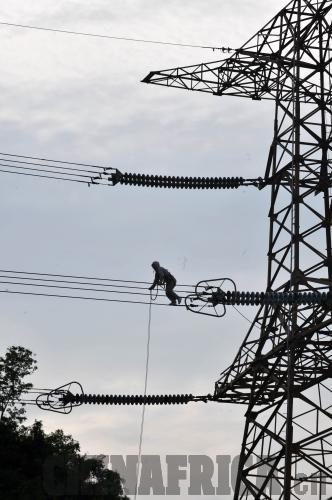|

Ineffective reform
Given all of these factors, the Weiqiao mode is naturally regarded by experts as a good way of providing more options for electricity users.
"When an increasing number of practices begin to challenge the existing law, we should reconsider the applicability of the law," said Wang. He said the 17-year-old Electricity Law is outdated in terms of standardizing the electricity market and promoting reform in the sector. "It is time to adjust and modify the Electricity Law and other related regulations," he added.
Wang's view was echoed by Lin Boqiang, Director of the China Center for Energy Economics Research at Xiamen University. According to Lin, the Weiqiao mode is an isolated case and cannot be replicated elsewhere. "The company-affiliated power plant itself has the function of supplying electricity," he noted. "If such power plants are allowed to expand their power grid and sell electricity to the public, we need to modify the Electricity Law."
China's electricity system reform began in 2002, attempting to take down the monopoly. But 10 years later, Lin described the reform to have "basically failed" as China still does not have a fair electric power market with competition mechanisms.
The decade of China's recent development has seen a diversification in market players in terms of power generation, which include not only the five major state-owned power generation groups, but also some private enterprises. Despite this, the power transmission network is still monopolized by the state power grids. This monopoly led to the fact that generation enterprises cannot directly sell electricity to consumers and electricity users cannot independently select suppliers.
Looking ahead
According to Wang, China should introduce competition in electricity sales. In the process, power grid companies should only charge a grid-usage fee from generation companies. He likened the power grid in the future as a highway. "All transport companies can use the highways as long as they pay a toll fee," Wang said.
The government has also shown the will to break the monopoly in the power industry. Sources from a seminar on private capital entering the electricity sector held by the National Energy Administration show that the government is planning a 36-article regulation to encourage appropriate opening of the main power grids and a full opening of the branch power networks to private capital.
According to Lin, the government should launch a pilot project to allow private companies to operate power grids in some areas so as to foster competition in power supply.
"The Weiqiao mode actually enlightens China's reform in its electric power system for the next step. That is, a private company is also allowed to operate the power grid," he said. |